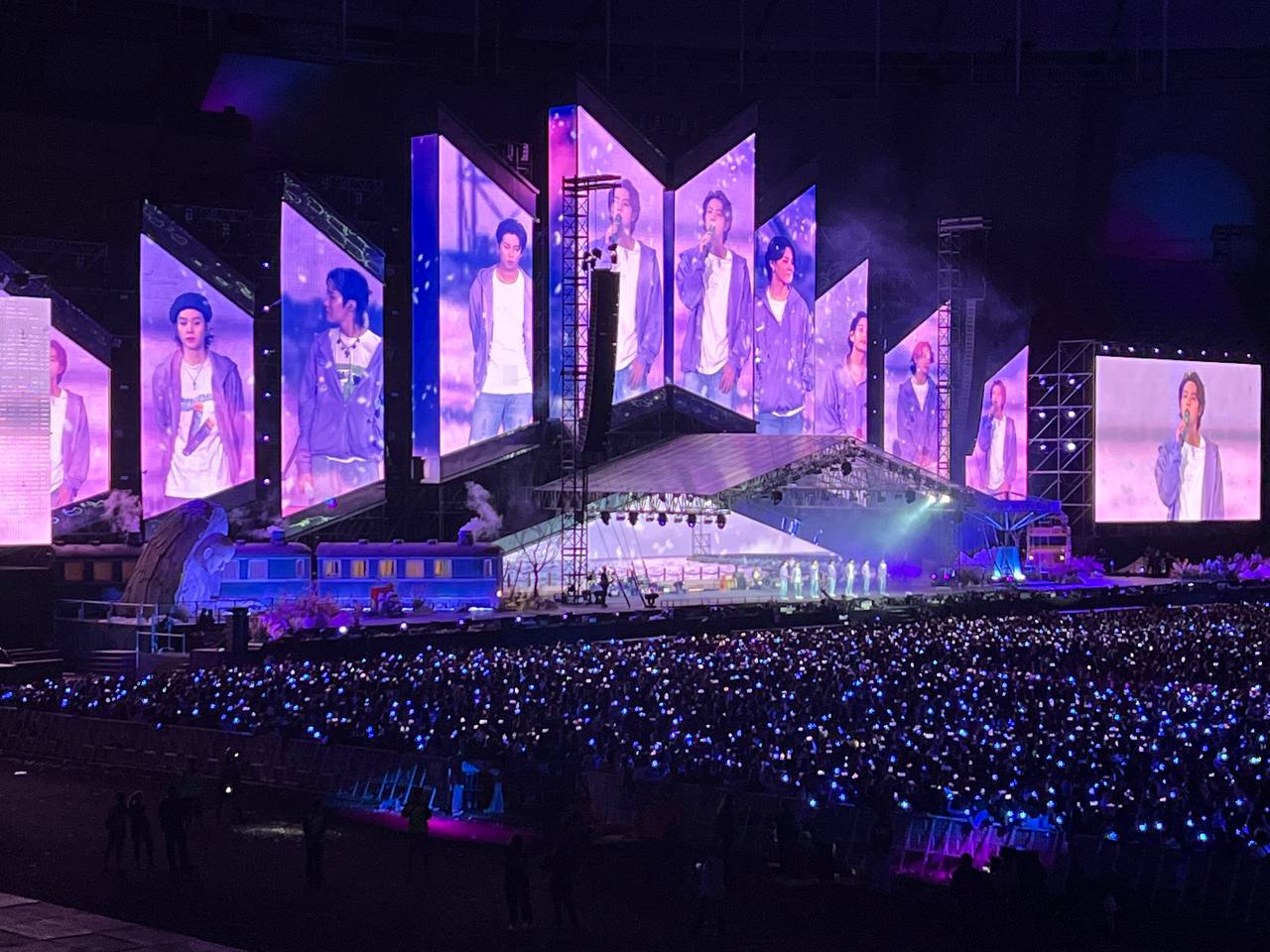By Nabilah Saleh
KUALA LUMPUR, Nov 7 (NNN-Bernama) — The mental and physical lethargy this writer had been enduring for some time due to long COVID appeared to vanish instantly the minute she was told she had been selected to participate in a media trip to South Korea organised by the South Korean Embassy in Malaysia.
If truth be told, what actually perked me up was the fact that our programme included a concert by my favourite K-pop boy band and global sensation BTS as well as visits to the cities of Seoul and Busan.
The six-day trip, which started on Oct 12, was aimed at introducing South Korea to Malaysians as part of the nation’s efforts to win the bid to host the 2030 World Expo, the largest international exhibition coordinated by the Bureau International des Expositions based in Paris, France.
Banking on its hugely popular Korean Wave or Hallyu, South Korea is betting on BTS’ international appeal to enhance its chances of winning the bid, which Italy and Saudi Arabia are also eyeing.
With South Korea expected to generate economic returns worth 61 trillion won (US$42.5 billion) if it wins the bid, the nation is leaving no stone unturned in its efforts to harness the influence its K-pop, K-drama and K-movie culture has on the international community, this writer not exempted.
AMID THE SKYSCRAPERS
While visiting the Gyeongbokgung Palace in the northern part of Seoul, I felt as if I was on the set of a Korean drama that I watched sometime back. Built in 1395 during the Joseon dynasty, the palace, incidentally, is a popular location for the shooting of historical genre drama series.
Another thing that impressed me about Seoul is how the city authorities have managed to preserve its historical quarters as tourist attractions amid the emergence of numerous skyscrapers belonging to South Korean corporate giants such as Lotte, Samsung, SK group, Hyundai Motor and Hahnwa Group.
Another specialty of Seoul is its scenic Han River. Many a Korean drama or movie has featured it as a favourite spot of dating couples as well as characters plotting the downfall of their “enemies”.
In real life, it is an ideal location for recreational activities and sunset cruises.
BTS AND BUSAN
After exploring Seoul for three days, we were whisked off to South Korea’s largest port city and proposed venue for the 2030 World Expo, Busan.
Busan, originally known as Pusan, was not exactly alien to me, thanks to the 2016 zombie film ‘Train to Busan’ which was a smash hit among K-movie fans.
Like Seoul, Busan too is a modern metropolis that has successfully retained the elements of its historical past.
No trip to Busan is complete without visiting Gamcheon-dong, which offers beautiful views of the sea from a hilltop as well as old and colourful multi-storey dwellings. According to the Busan Metropolitan Council, this area is among the city’s most popular tourist destinations.
Finally came the highlight of the media trip – the ‘Yet to Come in Busan’ concert by none other than BTS. It was a free concert, courtesy of the K-pop icons who wanted to do their bit to support their country’s bid to host the 2030 World Expo.
I became this seven-member boy band’s fan two years ago and for me, the experience of watching them perform live in their homeland was a dream come true. About 50,000 fans, including thousands from various other countries, turned up for the concert held at the Asiad Main Stadium in Busan.
Despite the capacity crowd, I was impressed with the behaviour of the audience who obediently complied with all the rules and regulations throughout the concert. There were even seats reserved for people with disabilities. The success of the concert certainly showcased the professionalism of the people and administration of Busan.
I got to meet some hard-core fans of BTS at the concert. Bak Mi Jeong, who works as an environmental analyst in Seoul, said the concert exuded a positive aura of Busan’s capability of organising the world’s largest expo.
“BTS plays a prominent role in disseminating news about Busan. I’m optimistic that if Busan gets to host the World Expo in 2030, our nation will reap a lot of economic benefits including creating more job opportunities for the people here,” said Bak.
Secondary school students from Seoul, Lee Yuna and Kim Min Gyeong, praised BTS for their patriotic spirit and for performing the concert free of charge.
POWER OF K-POP CULTURE
Meanwhile, deputy executive director (Academic & Student Affairs) of Asia-Europe Institute at Universiti Malaya Dr Nurliana Kamaruddin said South Korea is clearly leveraging the popularity of its pop culture in its bid to host the World Expo.
She feels that South Korea has the edge over the other two bidders because its pop culture has been spreading rapidly since the late 2000s and is well-known worldwide.
“Definitely South Korea is leveraging its pop culture status to win global hearts on the bidding. As for the other two contenders, do they have a pop culture that’s internationally visible, so to speak?
“For the longest time, the Korean culture itself has not been as highly exposed as it is today,” she said, adding that getting to host the World Expo is important to South Korea not just to gain soft power visibility but also economic benefits.
The World Expo takes place every five years with each event lasting six months. Countries from all over the world are invited to participate in the expo where they showcase the best of what they have to offer.
The result of the bidding for the 2030 World Expo will be announced at the end of next year. (photoBERNAMA)
— NNN-BERNAMA




